Transgender: Australian patients look for doctors that will accept their new gender identity
Trans people looking for hormones to change their look are seeking “friendly” GPs online. It comes as some urge caution, while others say patients are the “master of their own destiny”.
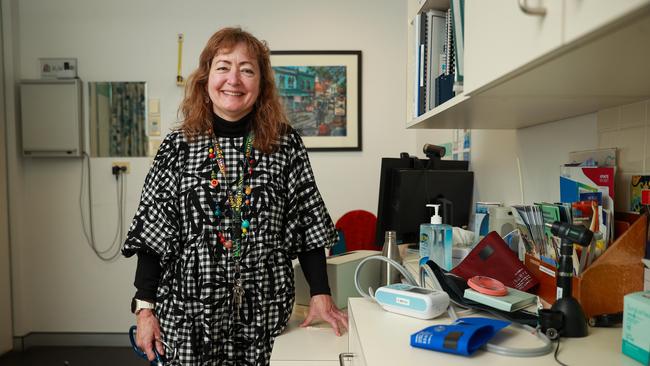
National
Don't miss out on the headlines from National. Followed categories will be added to My News.
Trans patients are swapping tips online on where to find “friendly” doctors who are willing to prescribe hormones to make them look more like the opposite sex.
Reddit is one go to site where the trans community shares information on which doctors are open to prescribing cross sex hormones quickly.
One person wrote on Reddit how they were prescribed ‘gender affirming’ drugs at a walk-in clinic in Queensland, after waiting about “30 minutes for the informed consent and prescription, and another 15-20 minutes for the pharmacy next door to fill it”.
There are lists of “gender affirming” doctors, who all approach patient care differently, being shared on government platforms.
News Corp is not suggesting doctors on these lists are doing anything wrong.
The government’s own website HealthDirect promotes “gender affirming care” and states that it is wrong for any health professional to try and change someone’s gender or identity.
However, it comes as a growing body of mental health professionals believe the government’s current advice is out of step with other countries around the world that have started taking a more cautious approach to medical and surgical intervention.
TransHub, which provides resources for trans people and health professionals, promotes the informed consent model as best practice for GPs – which is when the doctor takes the patient’s lead and accepts their new gender identity.
In some cases a prescription for cross sex hormones can be handed over in just two or three appointments.
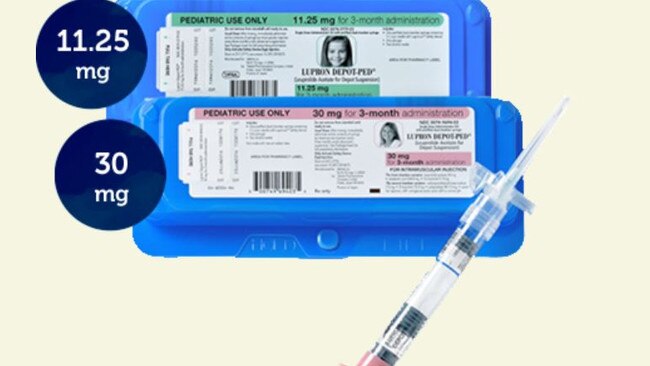
In many cases, no mental health professional needs to be involved.
For trans children, the parents need to agree to any medical intervention before drugs are prescribed and they need to be assessed by mental health specialists in what can be a significantly longer process.
However, psychologist Dr Roberto D’Angelo said some kids are still only having up to half a dozen sessions before being prescribed drugs.
His own assessment of the evidence for the benefits and harms of puberty blockers is that it is too weak and inconclusive for him to support prescribing them to children, even though “in some cases they can have positive effects”.
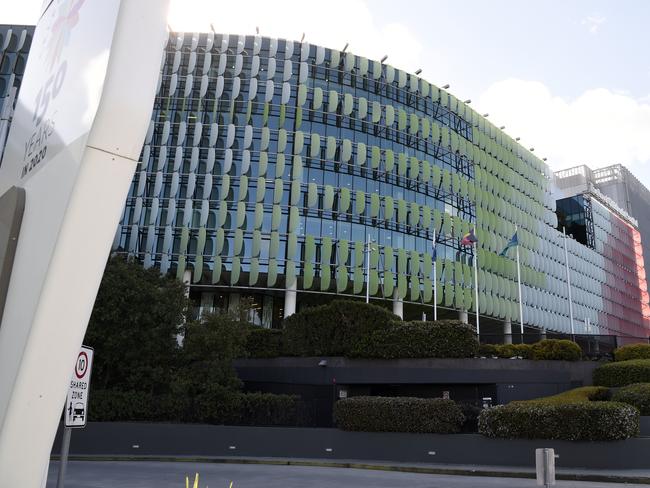
One doctor on the ‘gender affirming’ list is chairwoman of the Royal Australian College of General Practitioners (RACGP) NSW&ACT Dr Charlotte Hespe, who has been working with trans patients for 22 years, “before it was a trendy thing” for doctors to do, she said.
Dr Hespe said patients have got progressively younger over the years and she now sees teenagers, which she never did before.
She said that a lot of the kids are “troubled” and almost all of the ones she has seen have autism or Attention Deficit Hyperactivity Disorder (ADHD) and so “it’s tricky to navigate safely”.
She said she follows informed consent, while remaining “cautious” and if a child is under 16 she works with the patient, alongside a multidisciplinary team at The Children’s Hospital at Westmead, Sydney.
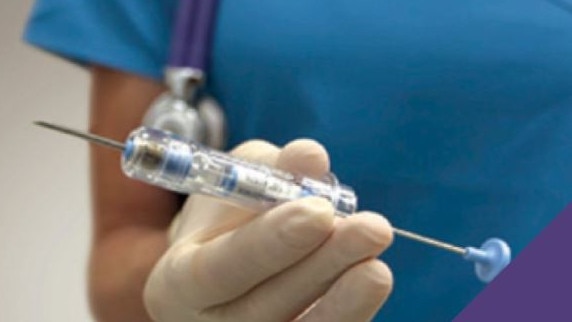
“I don’t think there is a child I’ve seen that has not had another diagnosis, I would not disagree with that,” Dr Hespe said.
“I get a good history; who they are, what is going on for them, making sure we don’t force our opinions on them.
“Puberty blockers are good if they have not gone through puberty yet.
She said she tries to make sure her patients make “wise” rather than “irreversible decisions”.
Out of more than 100 patients she has seen in 22 years, she said only one person, who wanted to transition as an adult female to a male, regretted the effects of being on testosterone and surgery. They now identify as gender neutral.
“She had three lots of surgery,” Dr Hespe said. “Had breasts off, had breasts put back on, had breasts taken off again.”
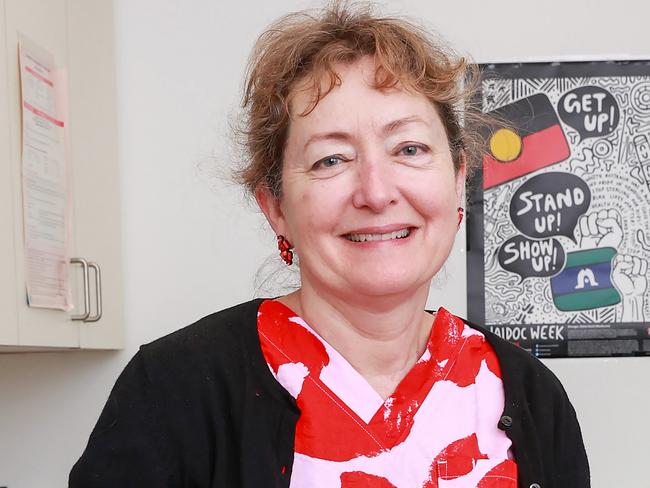
She said the patient had a personality disorder and worked with three to four psychiatrists, but “still did it”.
“Gender was a side issue,” Dr Hespe said. “These are complex human needs.”
Dr Hespe said the doctors need to make sure they “cross every single ‘t’ and dot every single ‘i’. “If you don’t feel comfortable prescribing then don’t.”
She said she didn’t think meds and surgery had made her patient’s life worse.
Meanwhile, Dr D’Angelo believes it can take months or years of therapy for some people to work through all their problems. He said many kids questioning their gender are also struggling with social anxiety, making friends or there’s family dysfunction, and think changing their identity will help.
“Everyone now looks online when they are not feeling good about themselves,” Dr D’Angelo said.
“Many of these young people feel desperate and are looking for a way to feel better.
“There’s a huge amount of material online which encourages transition which vulnerable,
struggling and troubled teenagers may feel offers them a way out of their difficulties.
“Gender dysphoria and transitioning can sometimes seem like the explanation for their problems.”
He said he’s worked with several people who have transitioned when they were young but regretted it, saying “regret can take up to 10 years”.
He said one identified as male and had a mastectomy, a hysterectomy and ovaries removed.
“When she came to see me she was identifying as male and very depressed,” Dr D’Angelo said.
“She could not understand why as she had done everything she thought that could help (surgery), but she felt worse.
“It took two years to try and understand her history.
“She came to the conclusion she was not a man and that other things had led her to take these steps.
“It was eye opening. It was alarming. She only had a handful of appointments with a
psychiatrist before transitioning. There were other more complicated issues that had not
been adequately diagnosed and had never been addressed.
“She is now identifying as a woman.
“She is happy with her gender now but is dealing with enormous grief and is struggling to
rebuild her life.”
‘I SEE 300 TRANS PATIENTS A YEAR’
A GP who prescribes cross sex hormones and puberty blockers to adults and children wishing to change their gender said they have to search for doctors like him that accept “patients are the experts in their own body”.
Dr Matt Barber from the Stonewall Medical Centre in Brisbane sees up to 300 trans people a year. Around 10 per cent are under the age of 18.
He said when it comes to gender identity he believes the patient is the “master of their own destiny” and the “doctor’s role is to inform and help them understand their decisions”.
He said the vast majority of GPs in Australia have little understanding in this space, which is why people seek out “gender affirming” doctors.
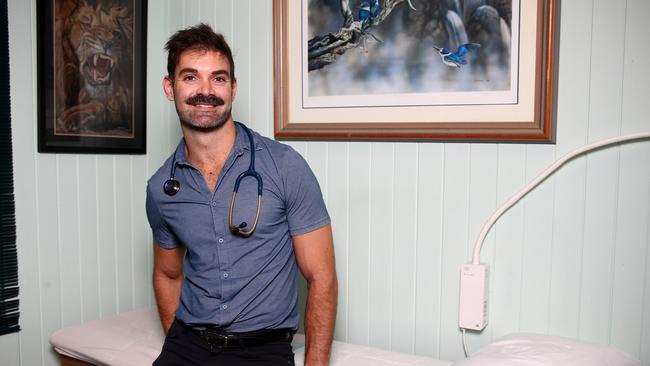
He said in straightforward cases he is happy to prescribe hormones in just two sessions.
In Australia “doctors are free to operate under their own opinions and beliefs”, Dr Barber said.
In the UK doctors have to follow new national guidelines for children with gender dysphoria, including carefully exploring any mental ill health issues.
He said almost all of his patients, both adults and children, are neurodivergent – meaning they have autism or ADHD. It’s a trend that is being replicated around the world, not just in Australia.
“It makes sense that people with autism are more likely to experience gender diversity because they are neuro atypical,” Dr Barber said.
“Gender diversity is similar in that way as they are gender atypical.”
He said he follows Australian guidelines promoted by AusPath – a group of health professionals working with trans people – that says gender affirming care is evidence-based and saves lives.
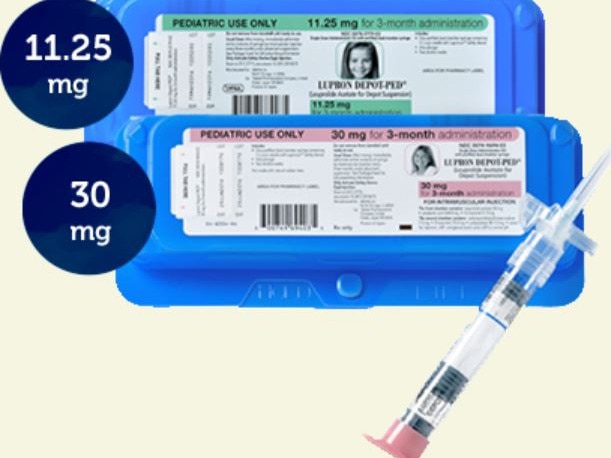
He said typically he sees eight to 10 new trans patients a week who present for an initial consultation to discuss gender dysphoria.
After that he will have a discussion about hormone therapy if that is what they want and he goes through the risks and benefits.
He said for kids aged 14 to 16 years it’s a grey area, as they need parental consent while those aged 16 to 18 should be able to consent.
Dr Barber said quite often his young patients wait until they are 18 to proceed with cross sex hormones.
But he said the rates of people regretting going on gender affirming drugs is “almost zero” and those taking it see an upswing in their mental health.
He said that is due in part to community acceptance.
He said that five years ago trans people embarking on “gender affirming drugs” would have received rejection from friends, family and colleagues, but that happens much less these days.
“It’s almost a universally positive experience,” he said.
He warned that if Australia followed the UK route and more barriers were put in the way of people seeking to transition it could result in people taking their own lives.
More Coverage
Originally published as Transgender: Australian patients look for doctors that will accept their new gender identity





